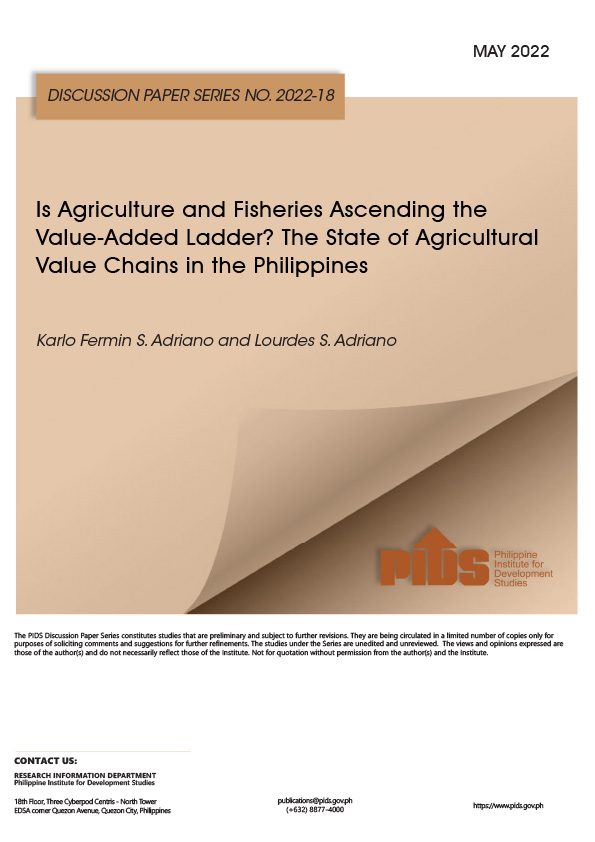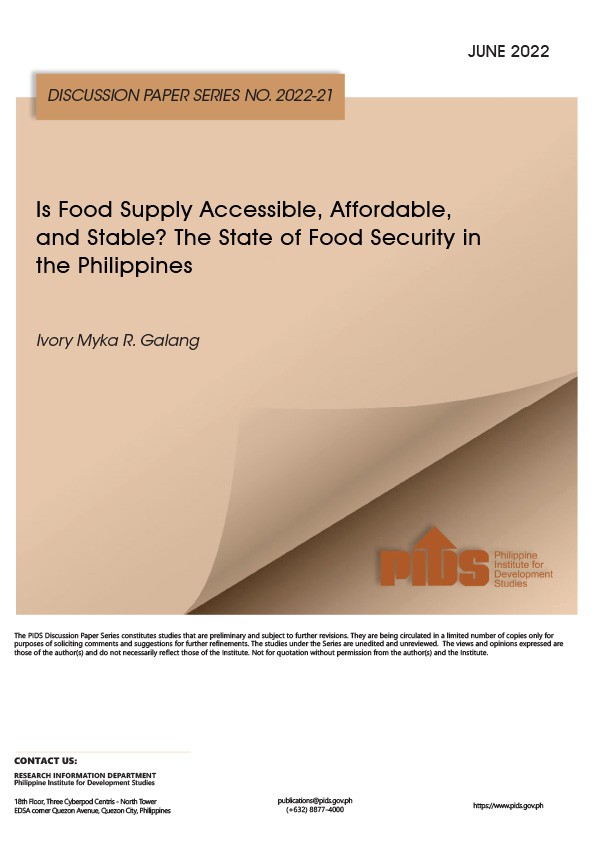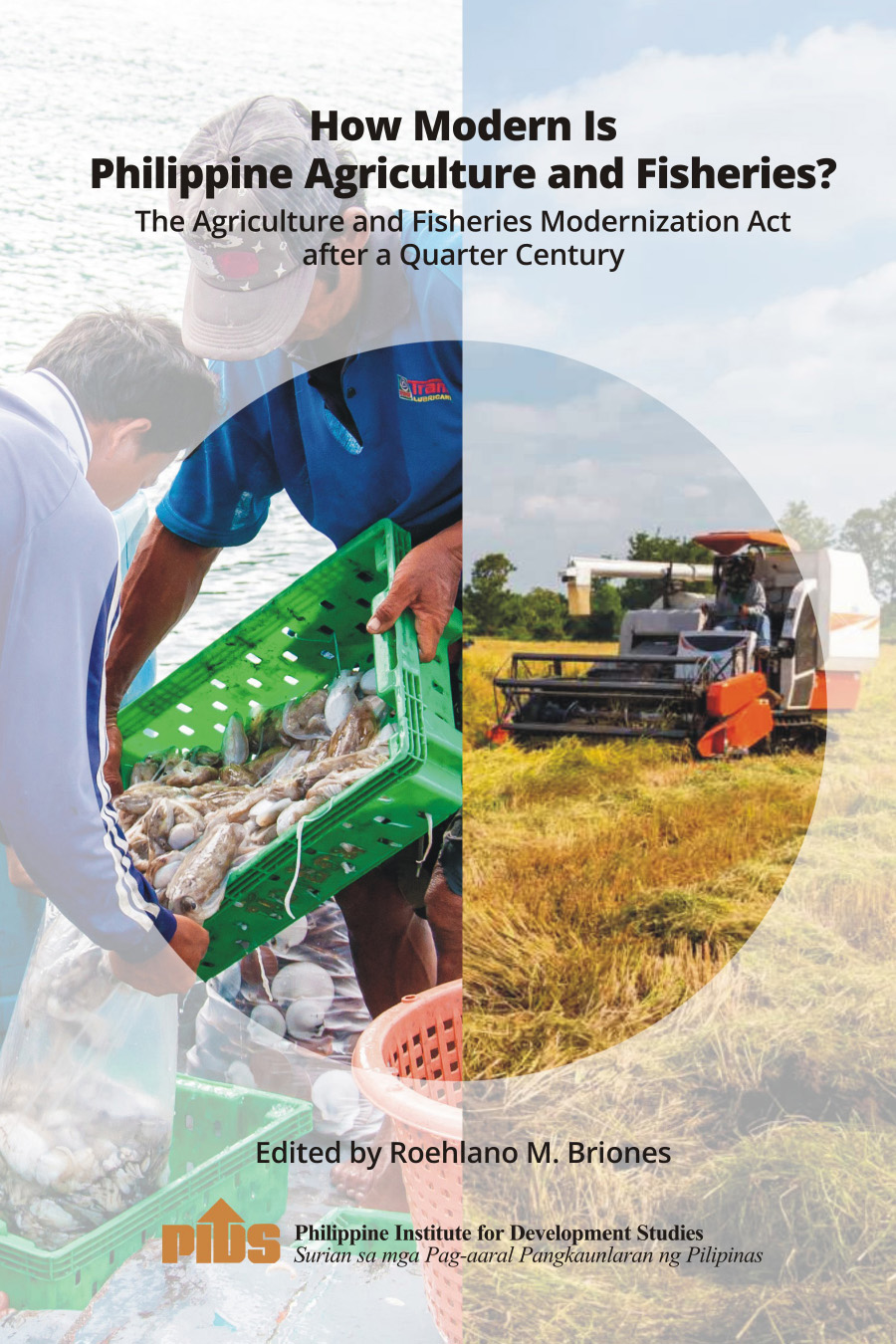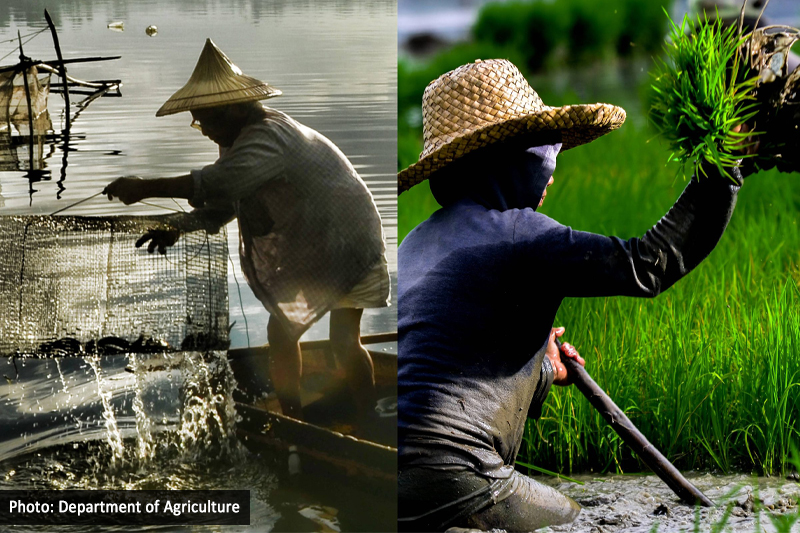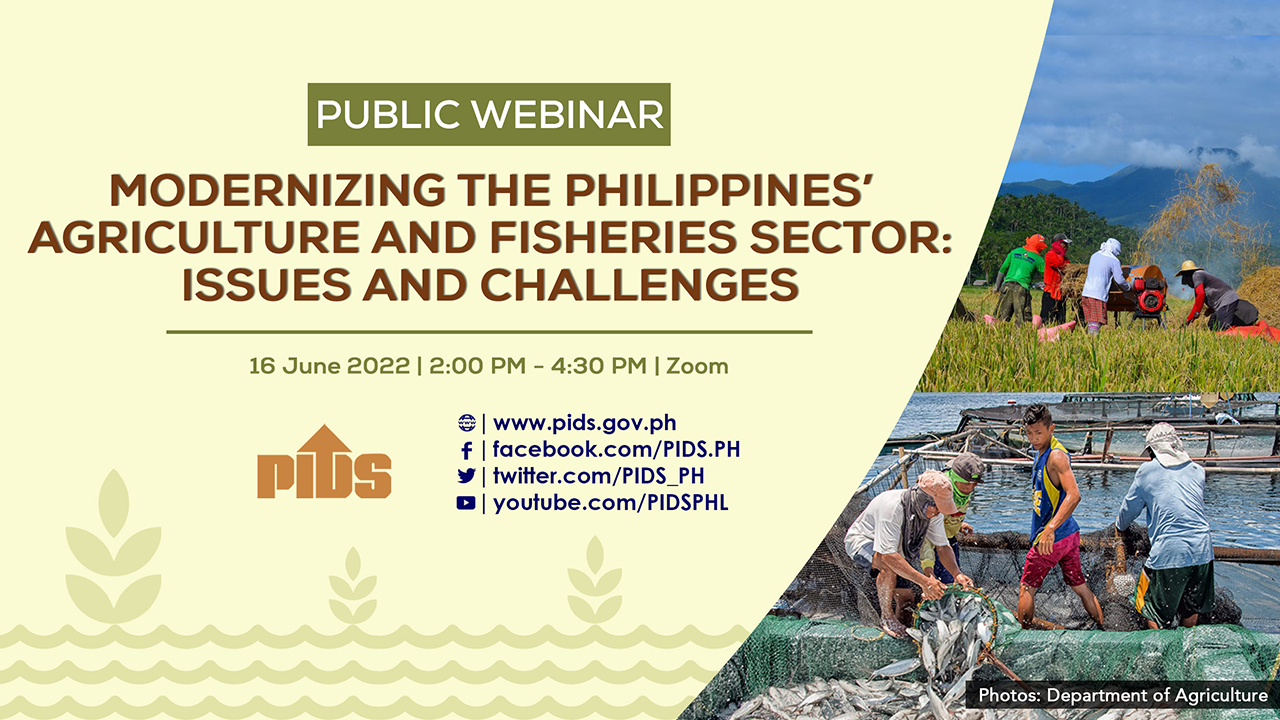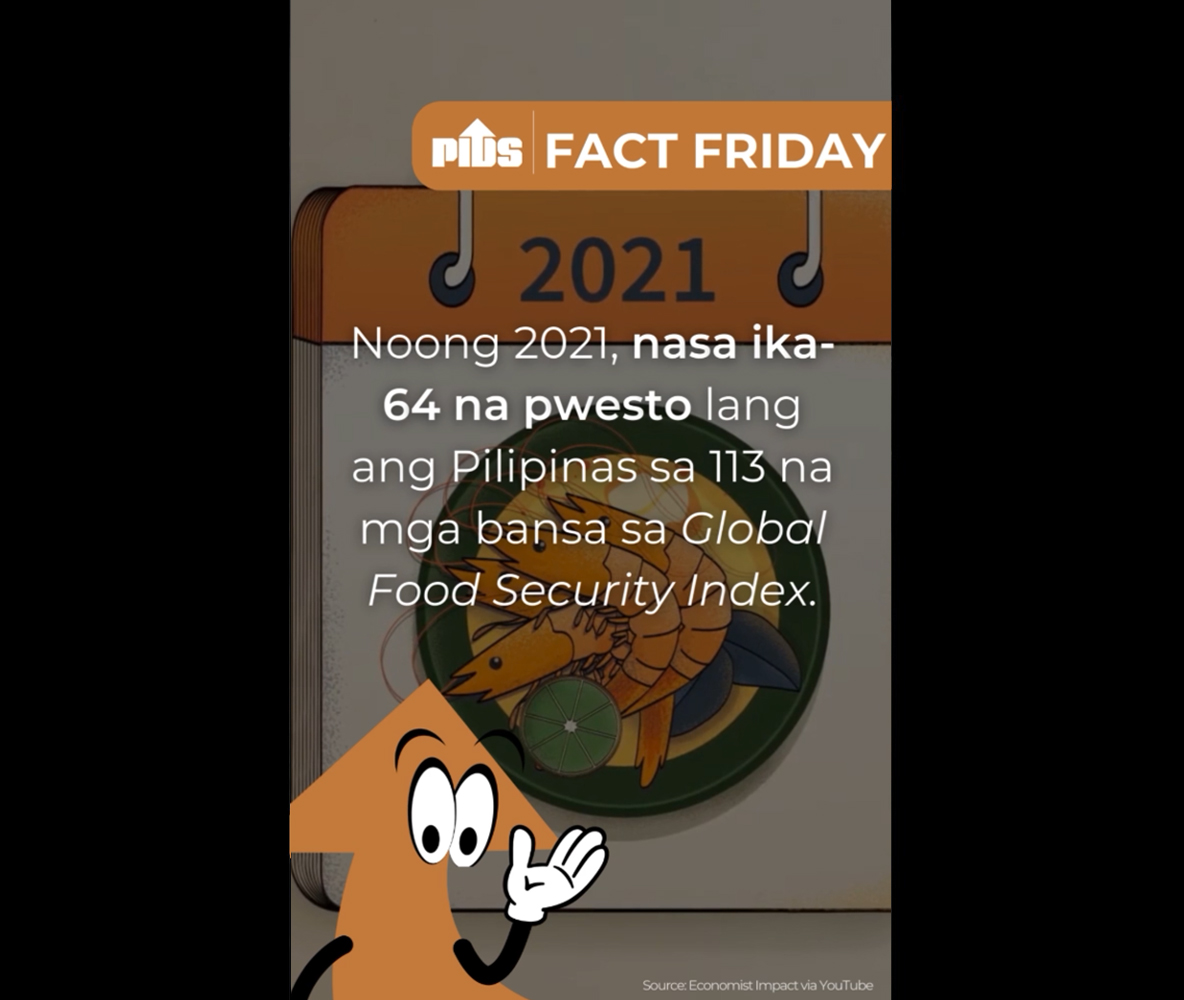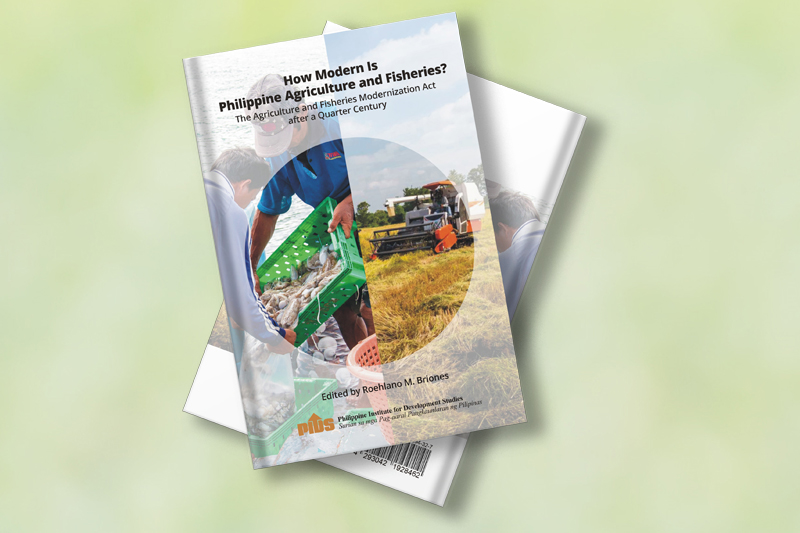
State think tank Philippine Institute for Development Studies (PIDS) assessed what the Agriculture and Fisheries Modernization Act (AFMA) had accomplished 25 years after it was passed in its newest book, “How Modern is Philippine Agriculture and Fisheries? The Agriculture and Fisheries Modernization Act after a Quarter Century”.
The book compiled studies that probed the extent to which the objectives of the law have been achieved. It also presented insights and recommendations to make the agriculture and fisheries sector dynamic, technologically advanced, and competitive.
Volume editor and PIDS Senior Research Fellow Roehlano Briones shared that the agricultural policy has made considerable progress in adopting the market approach since the mid-1990s. However, “state intervention has remained pervasive, with a strong reliance on propping up the market price through policy-induced import barriers.”
“A lot of our spending on agriculture is devoted to producer support. But much of this is skewed toward input subsidies, like seed subsidies, machinery subsidies, and irrigation,” he added.
Briones said the issue could be addressed by abandoning elements of traditional industrial policy inconsistent with the market approach.
“An alternative way is to continue supporting farmers through expenditure programs that are not based on distortionary subsidies. Let us pursue modernization by spending the budget for a modern industrial policy for the agri-food system rather than spending so much on subsidies,” he explained.
National Scientist and Academician Emil Javier, who served as a discussant, suggested that local government units (LGUs) should mobilize themselves to “drive modernization in their constituencies” by formalizing matching grants programs from the Department of Agriculture.
“We [should] elevate the level of focus and coordination of agricultural extension] through the province-led Agriculture and Fisheries Extension System (PAFES) given that rural towns do not have enough sufficient resources,” he said.
Fellow discussant and Philippine Family Farmers’ Agriculture-Fishery-Forestry Cooperatives Federation (AgriCOOPh) Chairperson Edelito Sangco agreed that PAFES is “a noble innovation”, but it is subject to the provincial governor’s “appetite for agri-fishery development”.
“Unless a whole-of-government approach is adopted by unleashing the power of cooperation, the AFMA’s objectives of attaining agriculture and fisheries modernization can never be realized even a century or more from the law’s enactment,” he surmised.
Atty. Rhaegee Tamaña, chief of staff of the Office of Senator Cynthia Villar and another webinar discussant, asserted that developing the agriculture and fisheries sector requires a bottom-up approach.
“The relationship between the LGUs and the Regional Development Councils should be taken seriously. It is not enough to have them in a meeting to discuss and submit a report or recommendation after the end of the year, not knowing how far they have gone,” she added.
In her message, PIDS Vice President Marife Ballesteros highlighted the agriculture and fisheries sector’s role in the country’s overall development, post-pandemic recovery, and sustained poverty reduction. She noted that the sector accounted for 9 percent of the country's gross domestic product in 2022 and provided livelihood to around 23 percent of the country's workforce.
“Long-term, coordinated, and systematic interventions are needed to ensure the sustained growth of the agriculture and fisheries sector and make it competitive and sustainable. This requires synergy among the government, private sector, civil society, and other stakeholders to overcome numerous challenges,” she supplied.
Download a copy of the book here: https://www.pids.gov.ph/publication/books/how-modern-is-philippine-agriculture-and-fisheries-the-agriculture-and-fisheries-modernization-act-after-a-quarter-century.
Watch the book launch at https://fb.watch/jmORyRKw0U/ and https://youtu.be/qVGLSS2IVhg.
For more videos of PIDS events, go to https://pids.gov.ph/videos. ###

